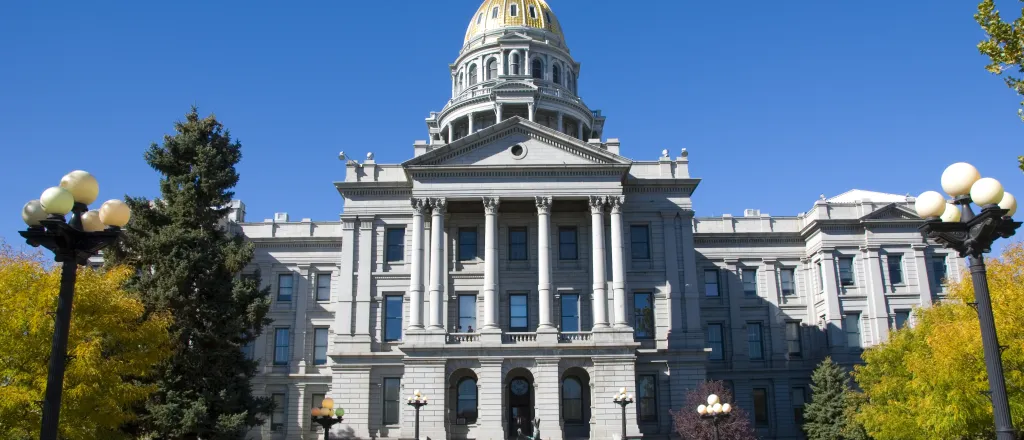
Mark Hillman’s Capitol Review - Fiscal tailgating made budget debacle more painful
Colorado Capitol Building Denver © iStock - kuosumo
Tailgating on the highway presents an obvious danger: drivers in a reckless hurry, traveling too fast, following the car ahead too closely. When someone taps the brakes, a chain reaction ensues, and the resulting collision is far worse than if everyone had been driving cautiously and responsibly.
Fiscal tailgating at the State Capitol has made budget cuts even more painful in the wake of the COVID shutdown. In times of prosperity, lawmakers saved next-to-nothing for the next economic downturn, spending literally 99% of all general tax revenues collected since the last recession. Worse still, they employed budgetary shenanigans to grow spending at unsustainable rates.
A year ago, lawmakers approved Governor Jared Polis’ top priority – funding for full-day kindergarten. But analysts used dubious assumptions to shave $40 million off the estimated cost. However, when school started last fall, the sleight of hand was exposed, and legislators had to pay the full cost.
In September, Colorado Sun reported that legislation passed by the Democrat-controlled House and Senate “often masked the true cost” by keeping spending low in the first year and pushing costs to future years.
In December, even with a projected $825 million more to spend, legislators said they wouldn’t be able to fund routine maintenance of state buildings. “We’re allowing state buildings to crumble,” said then-Rep. Chris Hansen, a Denver Democrat, calling this “a massive liability that will catch up with us.”
This year lawmakers were contemplating even more spending on mandatory paid leave and public health insurance programs.
To make matters worse, the legislature has never established a “rainy day fund” to help offset budget cuts in hard times, making Colorado the only state without a permanent budget savings account. Over the past nine years, the state put away just $871 million – less than 1% of all the general fund spending and a pittance compared to the current $3.3 billion shortfall.
In February, State Treasurer Dave Young, a Democrat and former member of the legislature’s Joint Budget Committee, urged budget writers to establish a permanent reserve. That admonition fell on deaf ears as had others in the past because politicians would rather boast about creating new programs rather than about preparing for hard times.
But hard times have returned – as they seem to do every eight to ten years – and the legislature’s failure to prepare has made matters worse.
Now the spending lobby is telling legislators, “This is not the time to cut funding for (insert budget item here).” They argue that state spending is counter-cyclical to the economy, meaning that the need for social safety net programs is greatest during an economic slowdown when tax revenues also decline.
That argument has merit, but neither lobbyists nor legislators show any inclination to take their foot off the fiscal accelerator in good times to ease the pain when hardship strikes. Instead, legislators have actually reduced the general fund reserve over the last two years.
Predictably, some legislators and the “spending lobby” at the State Capitol complain that the Taxpayers Bill of Rights (TABOR) makes it “impossible” to establish a rainy-day fund.
That’s hogwash.
A meaningful budget savings account must be established in the constitution to prevent legislators from raiding it on a whim. Such a measure easily could be referred by the Legislature for a public vote – just as they did last week with a bill seeking to repeal the Gallagher amendment that limits residential property taxes.
The TABOR limit was permanently modified in 2005, and since then has only impacted state spending twice in 15 years, resulting in refunds of just one-half percent of all general fund spending.
Given that lawmakers have spent literally 99% of all general fund revenue since the last recession, it defies credibility to argue that without TABOR’s modest guardrails they would have magically saved more.

















